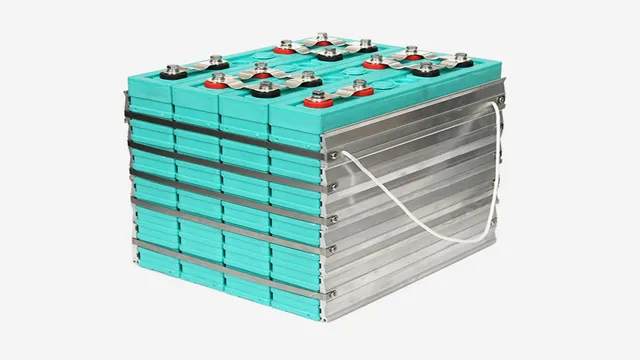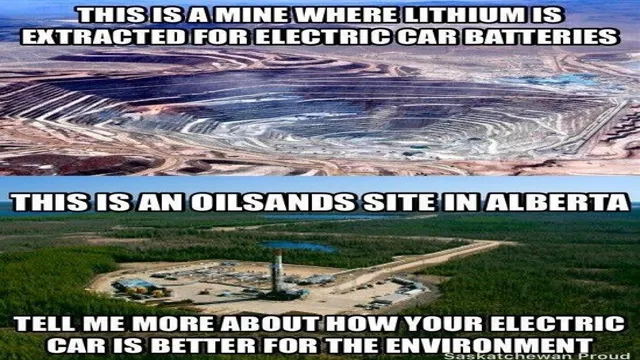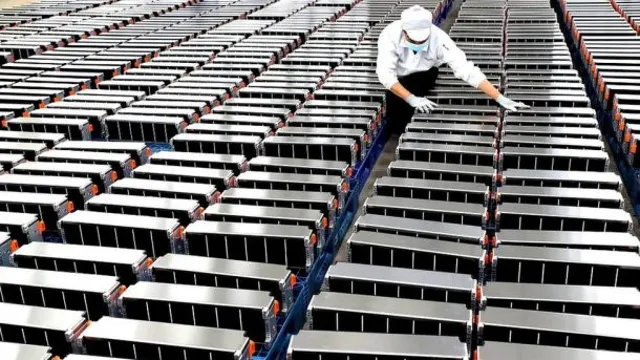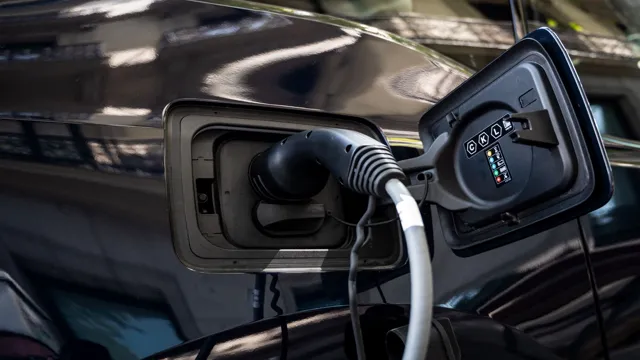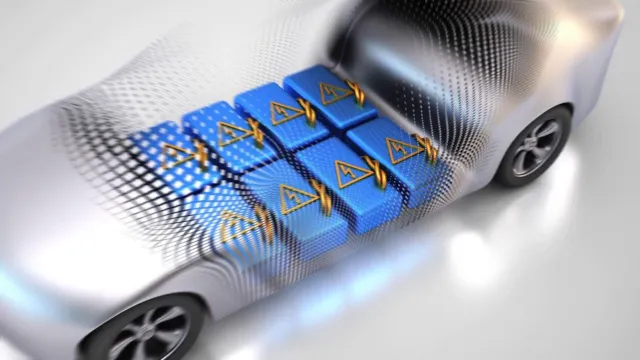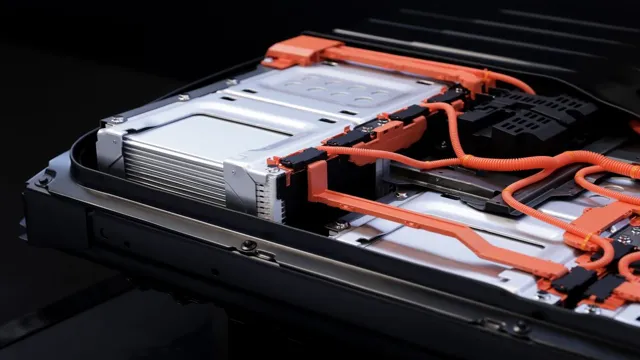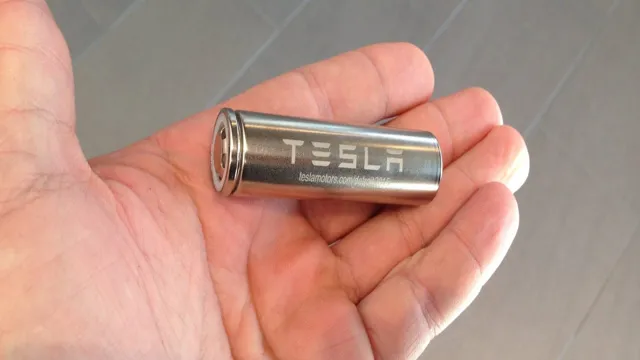Beyond Lithium Ion: The Truth About Electric Car Batteries And Their Environmental Impact
Are you tired of worrying about toxic chemicals leaking from your car battery? Look no further than non-toxic car batteries. In recent years, the harmful effects of traditional car batteries on the environment and our health have become more apparent. Lead-acid batteries contain toxic chemicals such as lead and sulfuric acid, which can leak into the soil and water if not disposed of properly.
In addition, exposure to these chemicals can cause respiratory problems, neurological damage, and other health issues. Non-toxic car batteries, on the other hand, use advanced technologies such as lithium-ion and nickel-metal hydride to power your vehicle. These batteries do not contain harmful chemicals and are more environmentally friendly than traditional options.
Plus, they tend to last longer and require less maintenance over time. Making the switch to a non-toxic car battery not only benefits your health and the environment, but it can also save you money in the long run. So why wait? Consider investing in a non-toxic car battery for your next vehicle upgrade.
Problem with Lithium-Ion Batteries
One of the biggest problems with electric car batteries is that they’re not as “green” as we may think. Most electric cars currently use lithium-ion batteries, which are not only expensive to produce but also contain toxic chemicals. These chemicals can pose a serious risk to both the environment and human health if not disposed of properly.
Additionally, the extraction of these materials has a significant environmental impact, including deforestation and pollution. This raises questions over whether the increased use of electric cars can truly be considered a sustainable solution. While efforts are being made to find alternative battery technologies, such as solid-state batteries or hydrogen fuel cells, these are not yet widely available or affordable.
It’s important that we continue to research ways to create truly sustainable batteries, as electric cars have the potential to revolutionize the transportation industry, but not if it comes at the cost of the planet.
Environmental Impact
The growing popularity of electric vehicles has led to an increased demand for lithium-ion batteries, but with this comes a serious environmental issue. Lithium-ion batteries require mining of materials such as lithium, cobalt, and nickel, which can lead to pollution and damage to local ecosystems. Additionally, the disposal of these batteries after use can also have negative consequences.
If not properly recycled, the toxic compounds inside the batteries can leak into the environment and harm wildlife and humans. It’s important for manufacturers to not only improve the sustainability of these batteries but also to develop more efficient and environmentally friendly recycling methods. Ultimately, we must take a holistic approach to minimize the environmental impact of lithium-ion batteries and ensure that our transition towards renewable energy is as sustainable as possible.
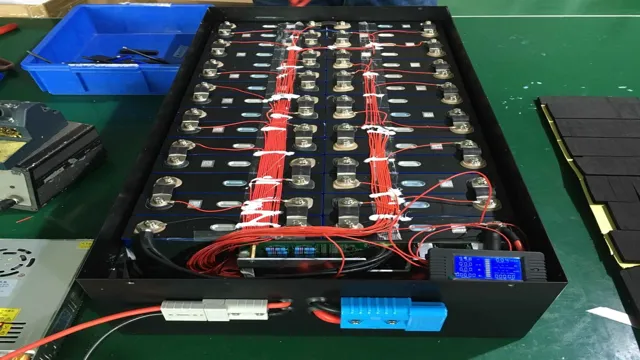
Limited Lifespan
Lithium-Ion Batteries Lithium-ion batteries are widely used today in various electronic devices such as smartphones, laptops, and electric vehicles. While these batteries have proven to be efficient and effective, they also have a limited lifespan. Over time, the performance of lithium-ion batteries gradually declines as they undergo wear and tear due to use and charging cycles.
This means that the battery’s capacity to hold and deliver charge decreases, resulting in shorter battery life. In addition, lithium-ion batteries can also be prone to overheating, which can lead to explosions or fires. As a result, battery manufacturers are continuously working on developing better battery technologies that can improve safety and increase the lifespan of lithium-ion batteries.
Alternatives to Lithium-Ion
Electric cars currently rely heavily on lithium-ion batteries, which can lead to sustainability concerns. Fortunately, there are alternatives to lithium-ion that are both environmentally friendly and effective in powering electric vehicles. One promising option is nickel-metal hydride (NiMH) batteries, which have a lower environmental impact and a longer lifespan than lithium-ion batteries.
Another promising alternative is lithium iron phosphate (LFP) batteries, which are safer and more stable than traditional lithium-ion batteries and have a longer lifespan. Additionally, solid-state batteries are emerging as a potential solution, with the ability to store more energy in a smaller size and reducing the risk of fires. The growing demand for electric cars is pushing for innovation in battery technology, and we can expect to see even more alternatives to lithium-ion in the near future.
By diversifying our battery options, we can create a more sustainable and long-lasting future for electric vehicles.
Lead-Acid Batteries
Lead-Acid Batteries When it comes to alternatives to lithium-ion batteries, lead-acid batteries are one option that has been around for a while. While they may not be as high-tech as other battery types, lead-acid batteries are reliable and cost-effective. They are commonly used in applications such as cars, boats, and motorcycles, where they can provide the necessary power without breaking the bank.
Another advantage of lead-acid batteries is that they can be recycled, making them an environmentally friendly choice. However, it’s important to note that lead-acid batteries have a higher weight-to-energy ratio compared to lithium-ion batteries and may not be suitable for some applications that require lightweight batteries with high energy density. Overall, lead-acid batteries are a practical alternative to lithium-ion batteries, especially for applications where cost is a significant concern.
Nickel-Metal Hydride Batteries
As we become more reliant on technology in our daily lives, the need for efficient, long-lasting batteries becomes increasingly crucial. While lithium-ion batteries have dominated the market for years, there are alternative options available, such as nickel-metal hydride batteries. Nickel-metal hydride batteries offer a higher energy density than traditional nickel-cadmium batteries, making them a viable option for portable electronic devices.
They also have a longer lifespan and are more environmentally friendly, as they don’t contain toxic heavy metals like cadmium. Though they are not as widely used as their lithium-ion counterparts, nickel-metal hydride batteries continue to have a role in certain applications, such as in hybrid cars and rechargeable AA and AAA batteries. As the technology continues to improve, perhaps we will see more widespread adoption of nickel-metal hydride batteries in the future.
Solid-State Batteries
Solid-state batteries are becoming a popular alternative to lithium-ion batteries in the world of technology. Instead of using liquid electrolytes, these batteries use solid electrolytes, which makes them safer and more durable. Solid-state batteries have the potential to increase battery lifespan and reduce the risk of fires and explosions compared to traditional lithium-ion batteries.
However, they come with some challenges, such as the need to develop manufacturing processes and materials to improve their performance and bring down costs. Despite these challenges, companies all over the world are investing in the development of solid-state batteries, and it won’t be long before they become more widespread. The future of portable technology looks bright with solid-state batteries potentially leading the way.
Benefits of Non-Toxic Batteries
Electric car batteries are not always as green as they seem. While lithium-ion batteries have been the go-to choice for electric cars due to their energy density, they come with a big environmental footprint. The process of mining and extracting the materials required for these batteries, such as lithium and cobalt, can cause significant damage to the planet and even in some cases to the people working in mines.
Fortunately, non-toxic batteries, such as sodium-ion batteries, offer a more eco-friendly alternative. These batteries use abundant, low-cost materials such as salt and water, and have been shown to be just as efficient and long-lasting as their lithium-ion counterparts. As the world continues to shift towards sustainable energy solutions, non-toxic batteries will play a vital role in reducing our carbon footprint and creating a cleaner environment for future generations.
Lower Toxicity
Non-toxic batteries have numerous benefits over their toxic counterparts. One of the biggest advantages is their lower toxicity. Unlike traditional batteries that contain hazardous chemicals and heavy metal elements, non-toxic batteries are made from safer and environmentally friendly materials, such as zinc, manganese oxide, and graphite.
This means that they are less harmful to both the environment and human health, as they are less likely to release toxic substances into the air or water when disposed of improperly. Additionally, non-toxic batteries are easier to recycle and have a longer lifespan than toxic ones, which means that they can help reduce waste and save money in the long run. Overall, using non-toxic batteries is a simple but effective way to promote a healthier and more sustainable future for ourselves and our planet.
Extended Lifespan
Battery technology has come a long way in recent years, and one of the best advancements is the development of non-toxic batteries. These batteries are not only more environmentally friendly, but they also offer extended lifespan, which can be hugely beneficial in a variety of applications. Non-toxic batteries use materials that are less harmful to the environment and human health, making them a safer and more sustainable option.
In addition, because they are designed to last longer, they can reduce the need for frequent replacement and disposal. This is not only good for the environment but can also save you money in the long run. Whether you’re using non-toxic batteries in your home, car, or electronic devices, their extended lifespan and low toxicity make them a great choice for anyone looking for a more sustainable and eco-friendly energy source.
Conclusion
So, in conclusion, while we may have initially thought electric car batteries were a green solution, the reality is that lithium ion batteries are not without their environmental drawbacks. However, this should not discourage us from continuing to push for cleaner forms of energy and sustainable transportation. So let’s keep our batteries charged and our minds open to new, innovative solutions.
“
FAQs
What makes electric car batteries not entirely green?
Although electric cars may seem eco-friendly, their batteries are not entirely green since they require non-renewable resources (such as lithium and cobalt) to manufacture.
Why are electric car batteries prone to malfunctioning?
Electric car batteries, particularly lithium-ion batteries, are prone to overheating and catching fire if they are not fitted or handled properly.
How do electric car batteries compare to traditional car batteries?
Unlike traditional car batteries that need to be replaced every few years, electric car batteries have a longer lifespan and can last up to 10-15 years with proper care and maintenance.
Can electric car batteries be recycled?
Yes, electric car batteries can be recycled since they contain valuable metals such as cobalt, nickel, and lithium that can be extracted and reused for new battery manufacturing or other applications.
